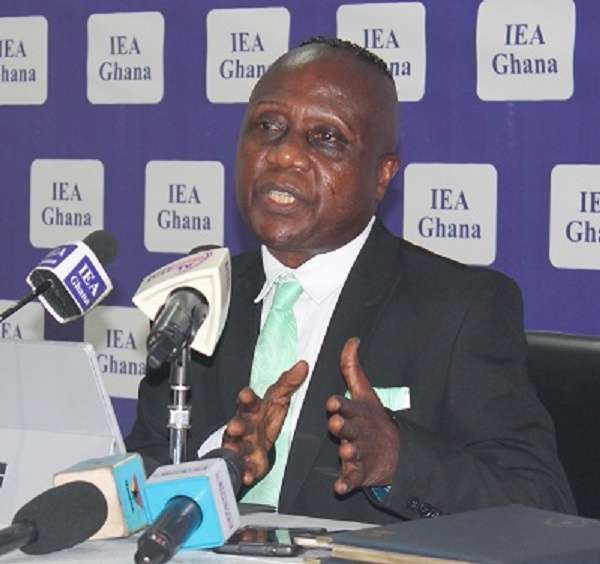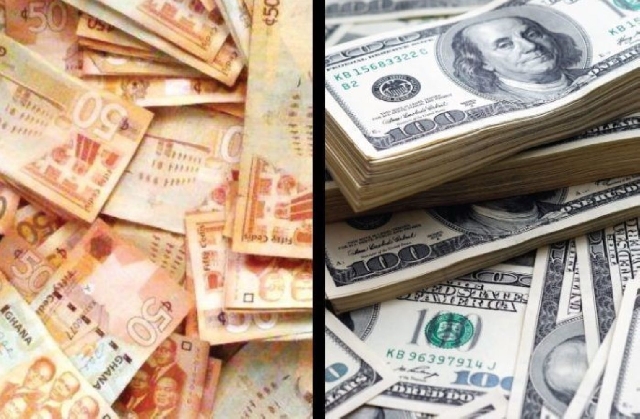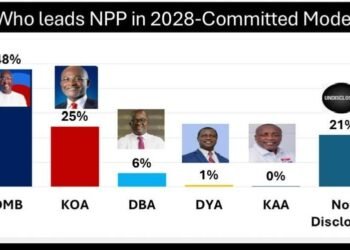The recent surge in cedi appreciation has sparked debate across Ghana’s economic and political landscape.
However, according to leading economist and political risk analyst Dr. Theo Acheampong, the local currency’s performance is far from accidental—it is a direct reflection of effective domestic policy interventions.
Speaking on the current state of the cedi, Dr. Acheampong emphasized that Ghana’s currency stands out among Africa’s best-performing units so far this year, particularly over the last two to three weeks.
He explained that while other currencies on the continent have struggled to gain traction amid global economic headwinds, the Ghanaian cedi has defied those odds.
He contrasted the cedi’s performance with that of other African currencies. “In fact, some other African currencies, like the Kenyan, Tanzanian, and Ugandan shillings, have depreciated over the same period,” he said, citing comparative market data.
These economies, like Ghana, also rely heavily on commodity exports and are similarly exposed to external market forces.

“So, let no one lie to you that the recent Cedi appreciation is only due to external factors. These other countries—also commodity exporting—face the same external shocks; some like South Africa, even more so than Ghana, given their extent of integration with the global economy.”
Dr. Theo Acheampong
He highlighted the contrast by noting that the South African Rand has strengthened by around 3% against the US dollar since the beginning of the year and about 5.5% since mid-April 2025, whereas the cedi has surged by nearly 15% year-to-date and approximately 20% since mid-April.
Gains Driven By Internal Market Forces
Furthermore, Dr. Acheampong credits the cedi’s remarkable appreciation to a strategic blend of domestic monetary and fiscal policies that have played a pivotal role in shaping investor confidence and stabilizing market sentiment.
He emphasized that these internal factors are a major driver behind the currency’s strong performance, particularly in comparison to other African economies facing similar external pressures.
While acknowledging that the exact impact of these policies could be subject to debate, Dr. Acheampong rejected assertions by certain political figures who attribute the cedi’s recent gains solely to favorable external conditions.

He maintained that such claims ignore the substantial influence of homegrown economic management efforts that have helped to boost the cedi’s resilience in recent months. “It is highly disingenuous to write this off, as some political actors seek to.”
“Of course, we all want a STABLE CEDI that trades plus or minus within a certain band. That may not happen until the ongoing market correction settles in the next few weeks.”
Dr. Theo Acheampong
Adding another layer of support to the argument, Dr. John Kwakye, Director of Research at the Institute of Economic Affairs (IEA), echoed Acheampong’s sentiments.
He argued that the current cedi appreciation is not a fluke, nor is it temporary.
According to Dr. Kwakye, the currency’s recent climb is the outcome of a deliberate and calculated series of policy decisions.
These include fiscal tightening, monetary prudence, and strategic interventions designed to enhance investor confidence.
Cedi Appreciation Signals Strong Economic Management
Moreover, John Kwakye issued a strong warning to currency speculators, urging them to take heed of the current market dynamics.
He suggested that those betting against the cedi may face unexpected outcomes if they underestimate the strength behind its recent performance.
“Recent cedi appreciation is not ‘accidental’ or ‘a passing wind’ as the doubters and naysayers would want us to believe.”
John Kwakye

His remarks appear to target critics who have questioned the sustainability of the cedi’s gains and attributed the performance solely to fleeting market dynamics or external influences like debt relief and IMF support.
Analysts believe that the next few weeks will serve as a litmus test for Ghana’s macroeconomic environment.
If the policies sustaining the cedi continue to hold firm, it could lead to broader economic benefits, including reduced import costs, stabilized fuel prices, and overall inflation control.
Beyond the economic metrics, the growing confidence in the cedi is also beginning to reflect in public sentiment.
Social media commentary and business community reports indicate a cautiously optimistic tone as many stakeholders hope the gains translate into long-term economic relief.
Nonetheless, experts maintain that sustaining the cedi appreciation will require not just policy consistency but also transparency, fiscal discipline, and an ongoing commitment to economic reform.
Dr. Acheampong’s and Dr. Kwakye’s remarks serve as a reminder that the trajectory of a currency can often reflect deeper truths about a nation’s governance, economic planning, and institutional strength.
Their comments aim to temper political spin with data-driven insight, encouraging a more nuanced public discourse around Ghana’s economic recovery.
READ ALSO: Ghana’s Petroleum Consumption Soars 18.02% in Q1 2025























